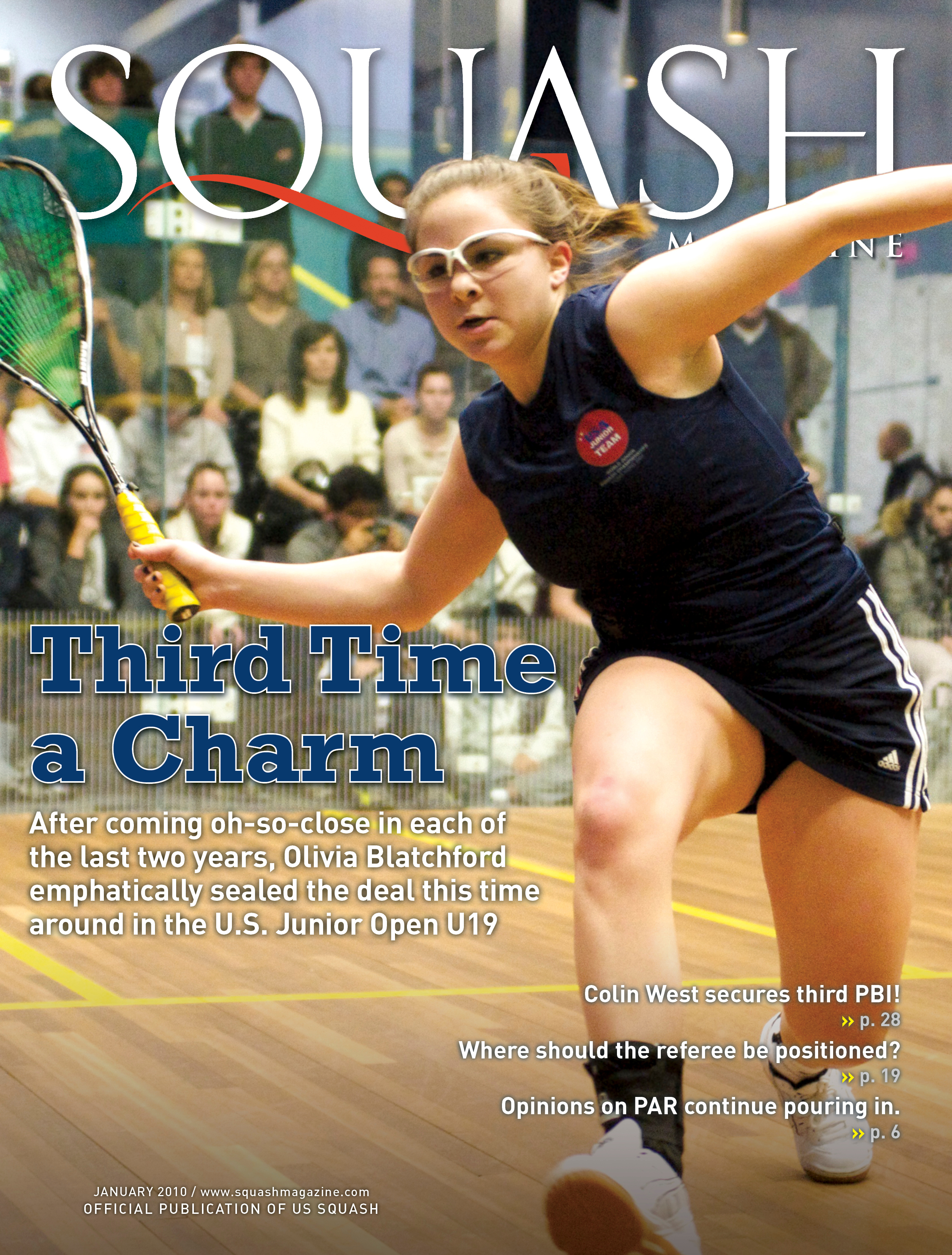By Jay D. Prince
Once or twice on this page I’ve taken time out to revel in the positives of being involved in a relatively obscure sport. Invariably, those thoughts have brought me back to the fact that it is a very cool thing when the best athletes in our game are so approachable. Not true with many sports.
While I, and everyone else involved in the business side of squash would love nothing more than to be included in mainstream American thought the way football, baseball and basketball are, it’s days like today (as I’m writing this) that I’m glad squash still has the niche that it does.
In the first week of January, the sports news in this country has been dominated by the suspension of Gilbert Arenas (National Basketball Association) for bringing guns to the Washington Wizard’s stadium; Mark McGwire (Major League Baseball) finally came clean about his steroid use—five years after being questioned by Congress; and Jim Mora (National Football League) was fired after just one season as head coach of the Seattle Seahawks.
There are countless other stories that do little to paint rosy pictures of athletes, coaches, owners/managers or fans, and perhaps it’s a bit unfair to highlight the negatives. But as with most of our media these days, we always hear about the negatives and very little about the positives. And maybe this is one reason why we don’t hear much about squash in the general media.
Yes, there have been incidents involving squash players, like the head-butt inflicted by Pakistan’s Mir Zaman Gul on Australian Anthony Hill in the 1994 British Open. But by and large, ours is a sport dominated by players who make themselves available to fans and media; coaches who hang out together at tournaments; and governing bodies that are constantly trying their best to not only serve their members but also to grow the game.
I suppose that if professional squash players and their coaches were earning tens of millions of dollars each year, skeletons in their closets—if there are any—would become the stuff of tabloid news. That’s the kind of twisted news world we seem to live in these days. If Tiger Woods wasn’t making the kind of money he’s making, or being plastered across billboards and in TV commercials the way he is, would we even care? I doubt it. Needless to say, it turns out he’s not the squeaky clean human being we thought he was, but because corporate America now fears losing sales if continuing to be affiliated with him, his sponsorship dollars are being yanked so fast it makes your head spin.
At what point do athletes stop playing their games for the very reasons that they started? Is it when they start becoming good enough that it might help them get into college? Is it when they start seeing dollar signs in their dreams? And who is responsible for helping young athletes maintain the human qualities that are far more important then the paychecks they might one day (if not already) receive? I hope the answer to that question is obvious.
It’s so easy to get caught up in what sports can do for us, or what sports have done for us, that we forget why we started to play in the first place. I don’t know about you, but I started playing tennis at the age of four because it was fun. I quickly got pretty good at it, but the most important part was that it was fun to play. Same thing for baseball, and ultimately squash became my “fun” sport. Admittedly, I can get caught up in moments when frustration gets the best of me and I don’t look like I’m having much fun, but every time I walk onto the court and close the door, my first thought is, “for the next hour, nothing else matters and I’m going to have fun playing squash.”
So let’s just hope that as our sport grows, we can keep life in perspective and maintain focus on the reasons we play the games we do. Thank goodness I didn’t become a professional athlete and make millions of dollars to ruin my fun. Uhhh, did I just say that?




